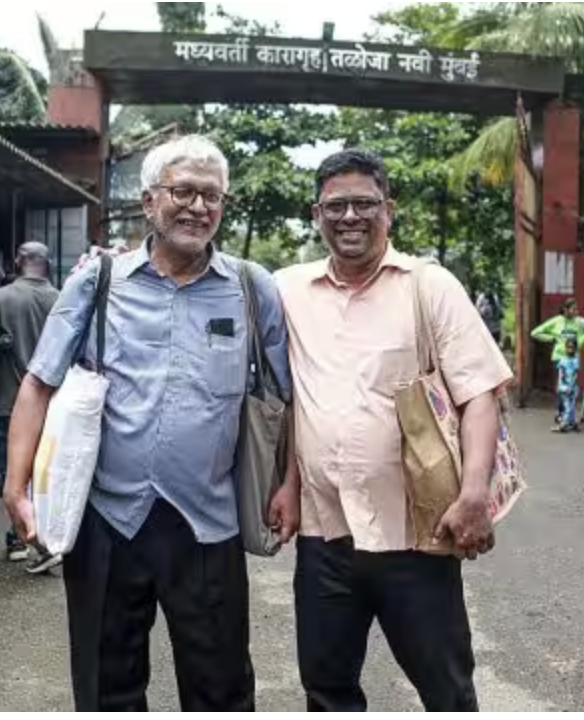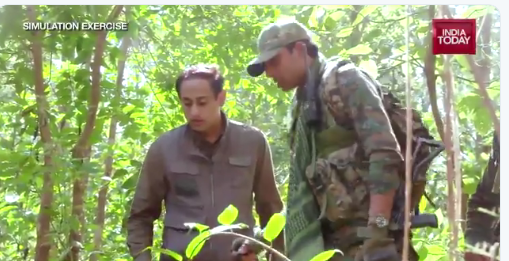BAIL, AT LAST, BUT UNDER WHAT CONDITIONS?
The unjustified bail conditions imposed on human rights activist Vernon Gonsalves and lawyer Arun Ferreira in the Bhima Koregaon case strikes at their right to privacy and further curtails their liberty. An analysis on the implications of the bail conditions from the People’s Union for Democratic Rights (PUDR)*

In a significant judgement on 28 July 2023, the Supreme Court of India granted bail to Vernon Gonsalves and Arun Ferreira, two of the accused in the infamous ‘Bhima Koregaon’ or ‘Elgar Parishad’ case in which sixteen human rights defenders, one of whom passed away in custody, have been arrested since June 201
Like the others, Gonsalves and Ferreira were detained under the Unlawful Activities (Prevention) (UAPA) Act, 1967. The Supreme Court granted them bail on two primary grounds: one, that they had already been imprisoned for five years with the trial not having commenced yet, and that the National Investigation Authority (NIA) had been
unable to justify, even prima facie, the allegations against them. The second ground begs the question: why was bail not granted earlier if the NIA could not justify the allegations?
To answer this question, we need to understand more about the law under which the BK-16 are entangled. The UAPA, which was enacted in 1967, empowers the Union Government to ban organizations as ‘unlawful’ (Chapter II) or ‘terrorist’ (Chapter VI), and criminalizes individuals on allegations of being members or supporting these banned organizations. Under general laws such as the IPC, a judge would properly consider the evidence against the accused at a fair trial to decide the truth of allegations against them beyond reasonable doubt. Under the UAPA, the state is
able to circumvent the fair trial process by indefinitely imprisoning persons on mere allegations by effectively prohibiting their bail.
UAPA and the bypassing of a fair trial
For allegations of terror activities or associations (Chapter IV and VI), the UAPA effectively bars bail under Section 43D(5) in case the prosecution is able to show that the allegations are prima facie true, that is, superficially, without properly considering the evidence. In 2019, The Supreme Court in NIA v. Watali, had further made the demands of the section more stringent against the accused, by holding that at the bail stage, the accused cannot challenge the evidence of the prosecution, nor can it bring forth its own evidence in response. The implication of this was that
the prosecution could produce inadmissible and unreliable materials at this stage to deny bail, when the same materials may otherwise not be fit for presenting during the trial (for example, confessional statements). Since the accused cannot challenge or rebut this evidence, the court would be bound to take the prosecution on their
word alone.
Once such evidence is actually put through the rigour of the trial process, only 3-5 per cent UAPA cases end in conviction. The injustice of this provision is compounded, when one looks at the vague definitions of the offences under the law. What constitutes membership or support to a terrorist organization? Possessing books or pamphlets of a certain ideology, raising funds for legal aid to undertrials, founding an organization for legal aid allegedly as a ‘front’ of a banned organization?
Just earlier this year, for offences of unlawful activities and association (Chapter II and III), the Supreme Court in Arup Bhuyan-II had said that mere membership or support of unlawful association is enough, without further looking into the nature of support – whether the person was an active member, whether they were pursuing legal or criminal activities were irrelevant for certain classes of offences. For terrorist offences and association (Chapter IV and VI), the prosecution must still establish active membership, towards illegal activities of the organization.
Vernon Gonsalves and Arun Ferreira were facing allegations under both segments of UAPA – unlawful and terrorist associations both. The bar on bail, however, applies only to terrorist activities and associations, and not on unlawful activities.
In a move that eases the implications of Watali, the Supreme Court, in the bail order for Gonsalves and Ferreira, observed that no electronic evidence was recovered from their devices, and that mere possession of literature does not constitute an offence under the law; that collection of funds for legal aid for undertrials cannot prima facie be treated as an instance of terror funding; and that it is not sufficient to simply call an organization as a front of a banned organization as the links have to be proven.
The present judgment allows an examination of the relevance and reliability of materials in NIA’s chargesheet. The present judgment opens one avenue for UAPA undertrials to question the basis of allegations against them, requiring the police/ NIA to produce sound and reliable materials to justify denial of bail under Section 43D(5), although these will still not be a subject to detailed scrutiny like at the stage of trial.
The second ground on which the Supreme Court granted bail was on the guarantee of a speedy trial under the 2021 Supreme Court decision of Union of India v. Najeeb. In cases where the accused person has been in jail for a long period of time, and the trial is not likely to commence any time soon, they will be entitled to bail irrespective of the prohibition under Section 43D(5) UAPA based on their right to a speedy trial.
Both of these grounds are useful for not only those incarcerated in the Bhima- Koregaon matter, but thousands of UAPA undertrials across the country who have been indefinitely imprisoned based on mere allegations without justification.
Highly restrictive bail conditions
While this is good news, what is disturbing is that the court has created a set of bail conditions for both based on the fact that Vernon Gonsalves was once convicted and that there is a pending criminal case against him. What is even more disturbing is that the apex court has allowed for further conditions to be set by the special trial court, conditions that the latter may “consider fit and proper”.
Accordingly, on 31 July, the special NIA court has set further conditions which prohibit the duo from contacting or communicating with co-accused or any other person involved in similar activities; making any call either domestic or international to any person indulging in similar activities through any mode of communication; “tampering” with the prosecution witnesses; attempting to abscond or try to flee or having any gathering of visitors at their residences.
Among the seven conditions imposed by the top court, including the conditions that they do not leave the state of Maharashtra, the court ordered that they use one mobile phone each with its location available to the investigating authority all 24 hours. The NIA court said that both of them should always keep the GPS or location service of their mobiles active and keep their phones to be paired with the investigating officer, to enable him to identify the exact location at any given time!
This places Vernon Gonsalves and Arun Ferreria under constant surveillance. Such tracking amounts to their release from prison being at the cost of their movement and privacy, a point which further curtails the liberty available under bail.
The Special Court’s further conditions are deeply questionable as they show the enlarging hand of the investigating agency in a matter of liberty on bail that has been ordered by the Supreme Court. The conditions smack of arbitrariness as terms such as “similar activities”, “any people”, “gatherings of people” are vague and undefined.
What are these “similar activities”? In what way are these activities the ‘unlawful’ activities of which Gonsalves and Ferreira stand accused under UAPA but according to the SC the NIA has still to prove? Similarly “gathering of visitors” is particularly vague since visitors are not defined. Also “any people” would encompass just about anyone the investigating agency thinks fit.
Bail conditions must be proportionate , not unjustified
Breach of bail conditions based on vague and arbitrary terminology is onerous and unjustified and it contradicts the Supreme Court’s own position in Mohd. Zubair v. NCT of Delhi, that bail conditions may be imposed to serve the interests of investigation, must be proportionate, and must uphold the right to fair trial of the accused. Such sweeping conditions, the violation of which can result in the cancellation of bail itself, brings into question the nature of liberty that Gonsalves and Ferreira’s are placed upon their release from prison.
Ironically, the NIA itself expressed difficulty in complying with the Supreme Court’s bail condition mandating the pairing of Gonsalves’ and Ferreira’s phone with that of the investigating officers, as such a move could violate the privacy of those officials. The special court told the NIA to approach the Supreme Court to seek a modification
of the bail condition.
It is in this context that people who value civil liberties would view the bail conditions placed on Vernon Gonsalves and Arun Ferreria as unfair and unjust.
*People’s Union for Democratic Rights (PUDR) is a Delhi-based organisation committed to the defence of civil liberties and democratic rights.
Related



Commentaries